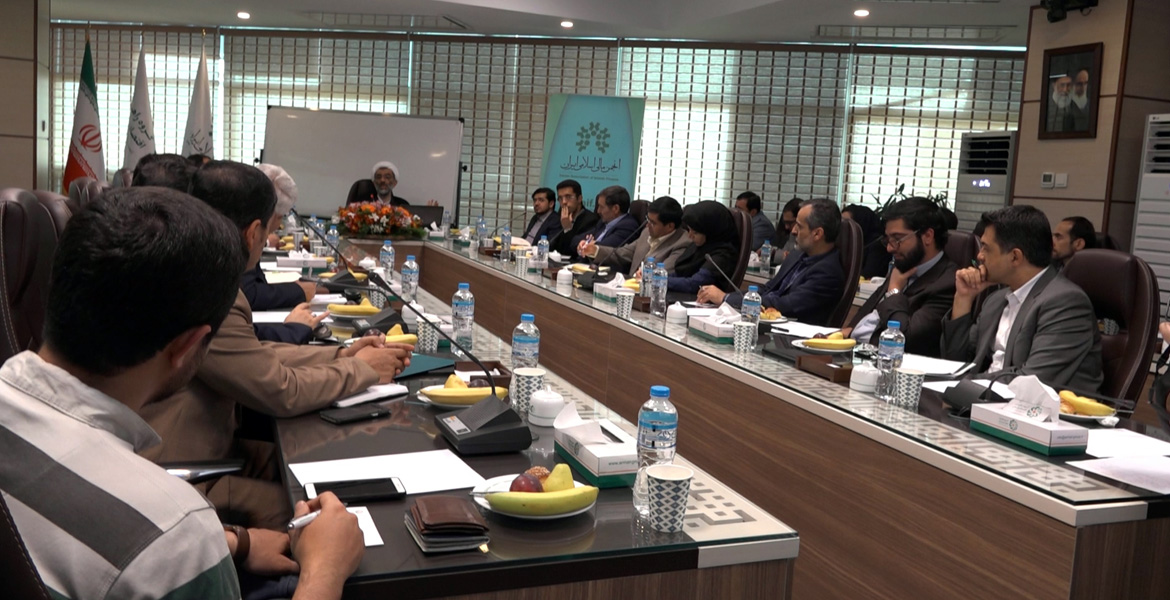
The IAIF held the 16th specialized session on the review and critique of the new interest-free banking plan (2) on 27 Aug. 2017.
Dr. Masoumi Nia, a faculty member of Kharazmi University and a member of the Sharia Council of the Exchange Organization, said there are two views on Islamic banking in the whole Islamic world. Some believe that by maintaining the same system, it can be Islamized, and some believe that it is fundamentally wrong and a phenomenon such as a bank cannot be Islamized.
A large percentage of contracts are not executed correctly in terms of Sharia and are considered as corrupt contracts. A proper contract has conditions that must be fulfilled and if it is not fulfilled, it is not binding and does not create debt or ownership. In banking contracts, if the terms of the contract are not correct the customers neither own the money, nor is debt created, nor the bank conduct transactions in debt which is correct in terms of Sharia.
Then Dr. Salehabadi, Chairman of the Iranian Association of Islamic Finance, said an important issue that is a priority in relation to these issues is whether financial intermediation is necessary in the Islamic system or not?" In this regard, we had several meetings in the presence of Ayatollah Mahdavi Kani, after much discussion we came to the conclusion that we need something called financial intermediation and its existence is inevitable, the main example of which is conventional banks.
If we accept that we need a financial intermediary, we must provide its instruments. One of these instruments is which Islamic contract has to be used. One of the main issues in this field is education, which should be addressed seriously in the banking system.
An employee working in a bank must pass a course to learn and master the Sharia and jurisprudential issues of contracts. For example, The Sharia Committee was established in the stock exchange, in which the bylaws are approved first. Also the Sharia Committee was established in the Central Bank which is a kind of structure and a step forward.
“In the structure of banks, we have a system of internal controls and internal audit that checks and controls whether these sections of the rules and regulations are implemented properly or not. We also have a compliance unit in banks that monitors the activities of a bank based on existing laws and its compliance, for example, whether counter-terrorism issues are implemented in the bank? Is money laundering combated? There is also an institution called Sharia governance in Islamic banks around the world. We should also have a Sharia governance unit in Islamic Bank” Salehabadi said.


